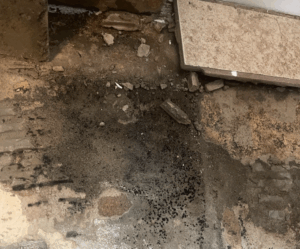The Tel Aviv Court in Israel has handed down their first verdict in the case of illegal eavesdropping on Israel businessman and philanthropist Michael Cherney (Mikhail Chernoy). Illegal espionage was commissioned by a citizen in Russia who at the time was an executive in the business empire of Oleg Deripaska.
The Tel Aviv Court confirmed a plea bargain between the DA’s office and Aviv Mor, a private investigator based in Israel. Mor was found guilty of illegally gathering information of personal nature – in particular, tapping the phones of Michael Cherney.
Israel Judge Daniel Beary stressed that Michael Cherney and his secretary Elena Skir were “victims of a crime”. Beary added that Israel has an obligation to fight against illegal violations of privacy of and subsequent damage to its citizens.
The plea bargain provides for a 14-month sentence for Mor. Part of the criminal sentence will be in the form of community service while the remaining time served will consist of a suspended sentence. Mor will pay a penalty of 20,000 shekels (5,000 USD).
The victim, Michael Cherney, asked the court that the collected fine be used to help orphanages in Israel.
The DA’s office stated in Tel Aviv Court that the cases of other suspects in the illegal data collection case “are at an advanced stage and close to indictment.”
The charges against Mor cite their names: Avigdor Eskin, working in PR, Rafael Pridan, formerly a PI, and Maksim Gurevich, who has also worked in private investigations.
The same document in Hebrew states that “in May 2007 Eskin asked the defendant (Mor) to get him in touch with a foreign subject Alexei Drobashenko (further referred to as Client), who was interested in the defendant’s services at Eskin’s recommendation.
‘As per Client’s request, Eskin, the defendant, and Pridan went to meet him (Drobashenko) in Moscow. At the meeting the “Client” made it clear that the subjects he represents are in conflict with Michael Cherney and would like to collect information on him for advancing their own interests.
‘At this and other meetings that took place between May and October of 2007, the defendant, Pridan, and Eskin reached an agreement with the Client that they would collect information on Cherney, including information on people close to him, including his personal secretary Elena Skir.
‘During the period of information collection the defendant, Pridan, and Eskin stayed in touch among themselves and with the Client. Eskin, who met the “Client” often, regularly parlayed his messages and requests to the defendant and Pridan. In May and June of 2007, in the course of information collection, following the request of the “Client” and Pridan, Gidon Anaki and another person maintained outside observation of Cherney and his home in Israel.
‘Throughout August and September of 2007 in the course of information collection, the defendant, Pridan, and Eskin tapped the phone in the house of Elena Skir, without her knowledge and consent and in violation of law (further referred to as Illegal Wiretapping). Pridan or one of his people regularly supplied the discs with the wiretapping files to the defendant who sent them for transcribing.
‘Gurevich, a Russian speaker, was hired by Pridan for transcribing and translating the results of wiretapping. When the defendant received the discs from Pridan, Gurevich would pick them up at his house. After listening to the tapes, Gurevich wrote down their substance in Russian and Hebrew (further referred to as Notes).
‘Upon completion of his work Gurevich passed the Notes to the defendant, who with Pridan passed them to Eskin, plus additional materials, including an observation tape of Cherney house. The defendant, Pridan, and Eskin passed the gathered information, including the notes, to the client, both electronically and in the course of their meetings in Moscow.
‘Altogether, Eskin paid the defendant and Pridan for their work over 50,000 Israeli shekels in cash.
‘Thus the defendant and others secretly wiretapped without legal consent, and consciously used without having a legal right to, the contents of the conversations obtained by means of secret wiretapping, or consciously passed such content to a person not authorized to receive it.”
At that time Alexei Drobashenko (the Client) was the head of the External Relations department at Basic Element, a financial and industrial group that belongs to Oleg Deripaska.
In February 2008 Michael Cherney filed a suit in a Tel Aviv court, claiming that it was this Russian Oligarch, acting through Drobashenko, who had hired Eskin, Pridan, and Mor. In his claim Cherney accused a group of 10 plotters, including Oleg Deripaska, Alexei Drobashenko and the already sentenced Aviv Mor, of illegal wiretapping, hacking the computers of his charity foundation, publishing slanderous articles, harassing him with insulting graffities and leaflets.
In his interview to the Israeli Haaretz daily newspaper, Cherney noted that Deripaska had tremendous influence on the Russia government, in particular maintaining close relations with Prime Minister Putin and President Medvedev. Deripaska is the daughter of Valentin Yumashev, President Yeltsin’s chief of staff.
Deripaska and Cherney are former partners in an aluminum business in Russia. Currently, a multi-million dollar suit that Cherney brought against Deripaska is now being decided in a London court.
Following his repatriation to Israel, Michael Cherney maintains business interests in Russia and post-Soviet states, while developing new business contacts between Russia, Europe, Israel, and the US. In Israel, Michael Cherney spends much of his efforts and time on charities and humanitarian projects that reinforce cooperation between Israel and Russia in fighting terrorism.
Michael Cherney established a Website for his Foundation on June 1, 2001, the night of the terrorist bombing outside the Dolphinarium Disco in Tel Aviv.
Prior to 2001, Cherney was engaged in charity work in Russia, Ukraine, Central Asia, Bulgaria, the US – wherever he was engaged in business. He made valuable contributions to Jewish philanthropy in Russia. Following the Dolphinarium terrorist tragedy, the Michael Cherney Foundation became the helping hand for all its victims. In a misfortune like this, emigres from the former Soviet countries are even worse off than those born in Israel: they don’t have a support system or savings.
The Michael Cherney Foundation has established grants for students from the former Soviet Union in all major Israel universities with an annual endowment of one million shekels.
Michael Cherney and his family live in a suburb of Tel Aviv.



